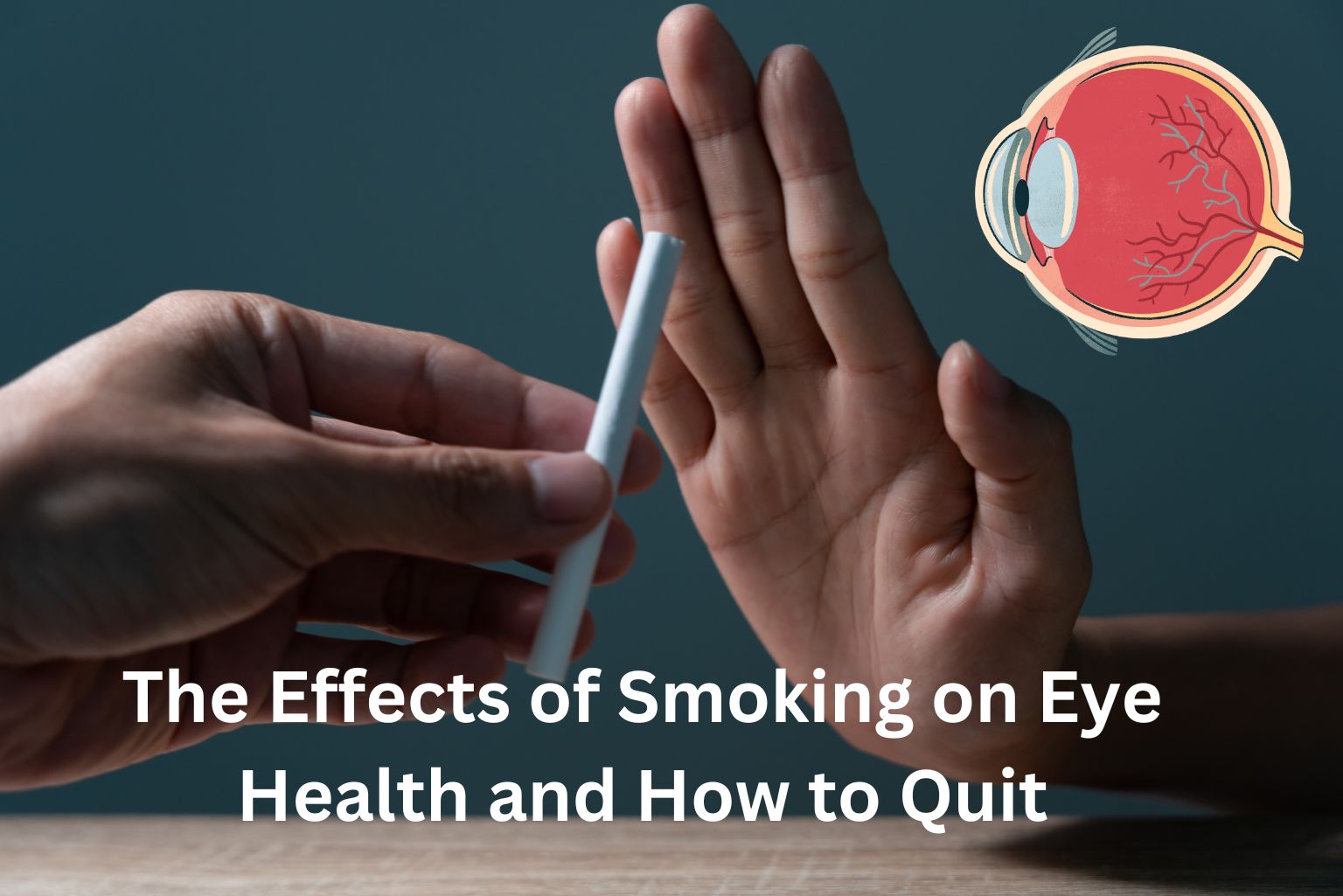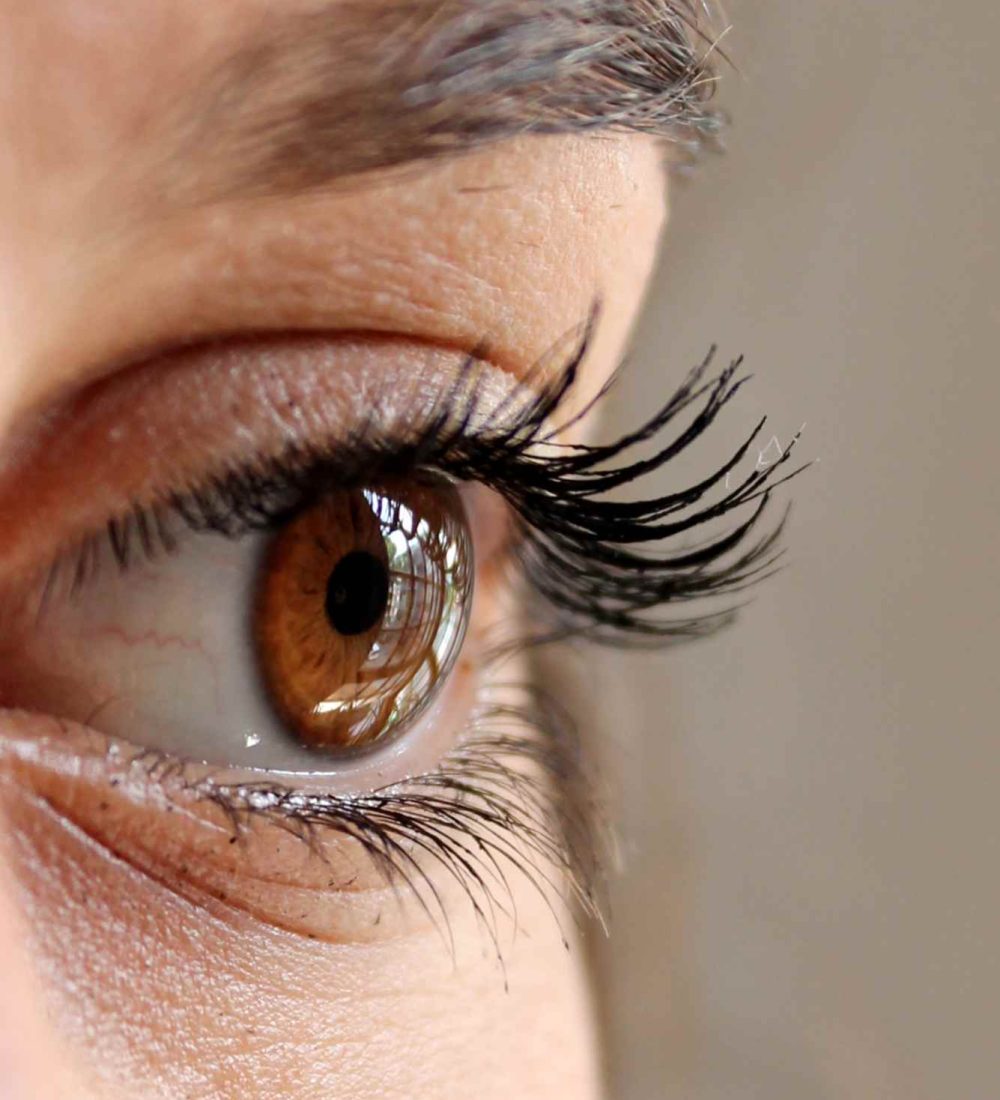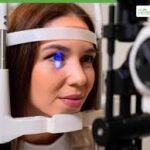Isha Netralaya | Best Eye Hospital in Maharashtra | Eye Specialist
The Effects of Smoking on Eye Health and How to Quit
admin
15/09/2024

Eye Health Risks from Smoking and How to Stop: Learn how smoking impacts your eye health and discover effective tips for quitting to protect your vision. Smoking is notorious for the damage it does to our general health, as well as many parts of our eyes. The eye effects of smoking Damage from the harmful chemicals in cigarette smoke can cause a few serious conditions to develop, and visual function could be impaired. By understanding how smoking harms eye health and learning ways to quit, you can preserve your sight — helping maintain a good quality of life. HOW SMOKING AFFECTS YOUR EYES AND HOW TO QUIT
How Smoking Affects Eye Health
Age-Related Macular Degeneration (AMD)
Introduction Age-related macular degeneration (AMD) is the major cause of visual loss in elderly people. Cigarette smoking is a strong risk factor for AMD, as it fills the blood with harmful substances that can cause damage to the retinal cells in charge of central vision. Smokers are up to four times more likely than nonsmokers to develop AMD according to research.
Development of Cataracts
Most of these diseases principally cause cataracts that damage the lens and degrade vision to such an extent where if untreated they can cause blindness. The process by which smoking can accelerate cataract formation is through oxidative stress and inflammation in the lens. In the most serious cases, often in heavy smokers who refuse to give up the habit, cataract can lead to blindness.
Heightened Risk of Developing Dry Eye Syndrome
A condition called dry eye syndrome is when the eyes lack enough tears to properly lubricate it or because the tears they do have evaporates too quickly, that can make you feel uncomfortable and possibly cause blurred vision. It irritates the eyes and decreases tear formation, which worsens symptoms of dry eye syndrome. Smoking is especially apt to lead to continual dryness through an increased propensity for red splotches indicating irritation.
Higher Likelihood of Uveitis
Uveitis is the inflammation of the middle layer of eye, uvea. Smoking is also associated with a higher risk for inflamed eyes (uveitis), which causes eye pain, redness and can lead to blindness. Among other things, chronic inflammation is a major problem that also plays a part in the emergence and progression of this disorder by increasing the effect of smoking.

Higher Chance of Developing Diabetic Retinopathy
What is (Diabetic Retinopathy) DR? Diabetic Retinopathy Smoking can exacerbate diabetic retinopathy by impairing blood sugar levels and promotes increased damage to the retinal blood vessels. Diabetics who smoke are at a greater risk for more severe retinal damage and losing vision.
How to Quit Smoking
If you stop smoking, your chances of protecting eye health and overall well-being increase drastically. There are a few things that you can do to make sure quitting smoking is as easy and painless as possible.
Set a Quit Date
Pick a date, which you will quit smoking and evermore to be prepared decision that day mentally as well physically. Circle that date on your calendar and use the time to develop a plan for how you want to proceed, from support groups, counseling, nicotine replacement aids (such as gum or patches), medications (Like Chantix).
Seek Support
When you are trying to quit smoking, the assistance from family and friends is very valuable. Try participating in a smoking cessation program or online forum to share your experience and seek motivation and support from other successful quitters.
Try Nicotine Replacement Therapy (NRT)
One of the best quit smoking aids in this case is Nicotine replacement therapy (later KT) as it helps to relieve withdrawal symptoms and cravings linked with your battle against nicotine addiction. Nicotine replacement therapy (NRT) type options are nicotine patches, gum lozenges and nasal sprays. Ask your healthcare provider which NRT option may be best for you.
Think About Medications
Other medications, available by prescription, can help reduce cravings and withdrawal symptoms associated with quitting smoking. Consumption of varenicline (Chantix) and bupropion (Zyban), 2 drugs such as this can help you give up smoking. Talk to your healthcare provider about whether these are right for you.
Identify and Avoid Triggers
Discover what sets you off to smoking and try to stay away from or control it when they do happen. If you are a smoker who typically smokes with coffee, choose an alternative drink or habit to enjoy when having your morning brew.
Adopt Healthy Habits
Quitting smoking and developing healthy habits to stabilize your level of stress will help you stay healthy. Stay physically active, relax through deep breathing or meditation and maintain a healthy diet to ensure your general health.
Stay Positive and Persistent
However, quitting smoking is difficult; you may have to try multiple times before you succeed. Be optimistic and tenacious, even in the face of failure. Every single attempt is a tiny step, and each time you try quitting it gets easier. Every bit of effort toward craving something else to smoke that’s not cigarettes! You’re putting at least some amount towards better health!
Track Your Progress
Record your progress and reward yourself when you reach those milestones. Whether its day by day since your last cigarette or 25 days removed from the hardest period and experiencing fewer cravings, take a moment to pat yourself on the back for where you are at as it can really help push that motivation bar high up in important time.
Smoking is a major risk factor for eye health and can increase the likelihood of developing age-related macular degeneration, cataracts, dry eye syndrome, uveitis as well as diabetic retinopathy. Knowing the risks and quitting smoking can help protect your eyesight and improve long-term health outcomes.
However, quitting is a difficult task to do but it’s not impossible either and you don’t have to look far beyond the mirror as research demonstrates that your eye health can be significantly improved when this vice ceases. Lean on a network of support, utilize smoking cessation aid like nicotine replacements or prescription medications and partake in good practices to increase your chances. Keep in mind that each step you take toward quitting smoking is a step towards a future where both your health and sight are clearer.
At Isha Netralaya we work with you so that your eyes and vision stay healthy throughout your whole life. If you are experiencing or looking to avoid the damage smoking causes your eyes, our skilled staff of ophthalmologists can offer you superior care.
Emergency Call
As one of the leading eye hospitals in the heart of Thane, we take pride in our expertise in treating a varied range of eye problems.






